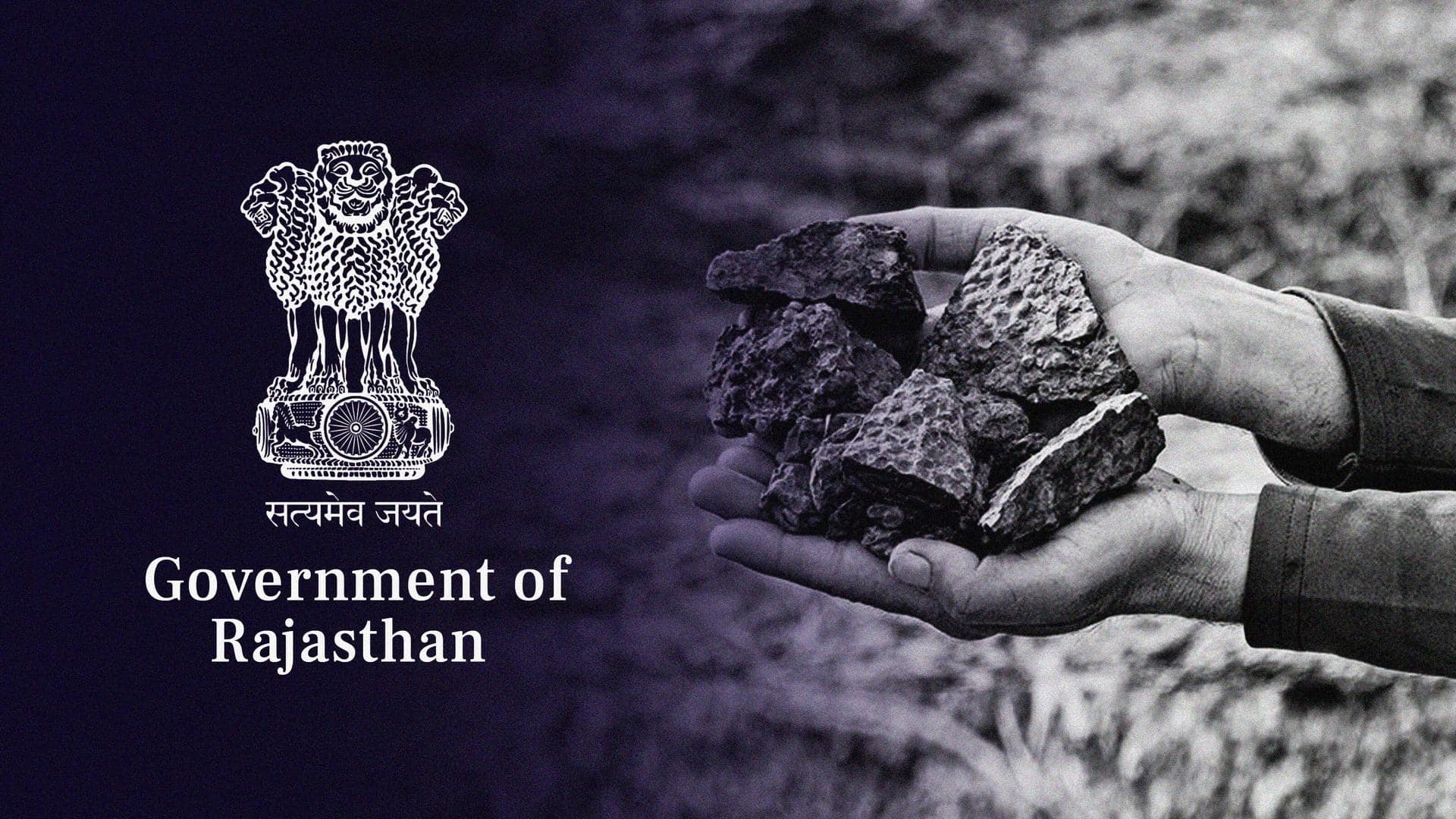
Huge Lithium reserves found in Rajasthan: Why it is significant
What's the story
The Geological Survey of India (GSI) has found new Lithium reserves in the Degana area of Rajasthan's Nagaur district, reports said, citing officials. According to officials, the reserves are higher than the ones discovered earlier in Jammu and Kashmir's Reasi district. They said that with the quantity of Lithium found in the new deposits, India can meet around 80% of its total demand.
Context
Why does this story matter?
Lithium, a nonferrous metal, is utilized in the batteries of electric vehicles (EVs) and most portable gadgets, including smartphones and laptops, due to its rechargeable properties. Currently, India imports most minerals, including lithium, cobalt, and nickel. However, the discovery of new Lithium reserves can end India's dependency on China. Notably, India intends to expand EV penetration to 30% by 2030, up from 1% presently.
Details
Lithium deposits in Rajasthan can meet 80% of India's demand
According to The Times of India, the Lithium reserves found by GSI in Rajasthan's Degana are much higher than the estimated 5.9 million tons of the metal found recently in Jammu and Kashmir. The estimated capacity of Lithium in Rajasthan is claimed to be capable of meeting 80% of India's total demand, which can reduce the country's dependency on China substantially, it claimed.
Dependency
India's Lithium dependency on imports will end
According to Mint, 50% of Lithium reserves are concentrated in South America—Argentina, Bolivia, and Chile—while China controls 75% of Lithium refining. Reportedly, India is completely dependent on foreign imports, mainly from China, for its Lithium needs. Between 2020 to 2021, India imported Lithium worth Rs. 6,000 crore, out of which Rs. 3,500 crore of Lithium was bought from China.
Information
What is Lithium?
Lithium is the lightest of the solid elements and a chemical element of Periodic Group 1 (Ia). The soft, white, and shiny metal, as well as several of its alloys and compounds, are mass-produced.
Uses
Know about uses of Lithium
Lithium, discovered by Johan August Arfwedson in 1817, is one of the world's most valuable minerals. It is utilized in smartphones, mobile chargers, computers, pacemakers, toys, and clocks. Lithium is also an essential component in the batteries used in electronic vehicles. Between 2008 and 2018, the yearly output of Lithium in the top-producing countries climbed from 25,400 to 85,000 tons.